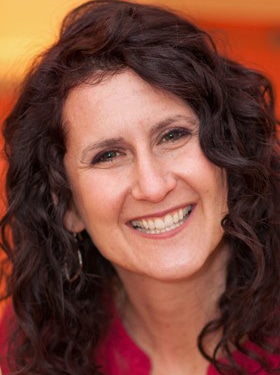by Denise Riebman
“I know this sounds childish, but I want a job that is fun.” My client was embarrassed to utter this “dirty” word during our career coaching session. Hearing the discomfort in his voice, I could feel my playful heart break. When did it become wrong to want to have fun at your job?
This is not about ping-pong tournaments, free espresso, and cubicle dance-offs. This is about meaningful work that lights us up rather than weighing us down. By building on our strengths, finding professional flow, and incorporating play into our jobs, not only do we infuse that dirty fun into our work, but research shows that our productivity skyrockets!
Research by Goleman and The Hay Group found that the most effective leaders are funny and get their employees laughing three times more often than their counterparts. “In Choosing a Job, Focus on the Fun,” a recent New York Times article, outlines the short- and long-term implications of increasing our awareness of what brings us enjoyment at work. At multibillionaire Richard Branson points out, “Some 80 percent of your life is spent working. You want to have fun at home; why shouldn’t you have fun at work?”
Step 1: Find YOUR fun.
“Researching for hours and hours,” is the response my friend, a professor, gave when I asked what a fun job meant to her. While she didn’t appreciate my look of horror, her face filled with dread when I shared that, for me, fun is being the keynote speaker at a conference. Everyone’s definition of fun is different! Here are easy ways to figure out what lights you up at work:
Step 2: Find out how MUCH fun you need.
Known for more than creating a magical world where a frog and pig fall in love, Jim Henson was notorious for his seamless integration of fun into work. From the glint in his eye, humorous direction, and mischievous meetings, it was clear that Henson clearly craved fun work. While I’m a Muppet superfan and love playfulness, I don’t need that level of supercharged fun at my job. How much fun do you need in your daily work life?
Step 3: Start having fun NOW.
The play we get as kids is connected to the development of our frontal cortex, which impacts cognition—our ability to distinguish relevant from irrelevant information, organize our thoughts, and plan for our future. But since we know that our brains continue to develop as adults, why do we think it’s bad to still want to play? This is not a childish desire, it’s an adult need—so let’s start having fun at work right now.
The journey is not a professional ladder but rather a career jungle gym, so let’s have dirty fun sliding and swinging and laughing at work!
Denise Riebman is a career development specialist who applies a strength-based, positive psychology framework toward inspiring individuals to find career happiness. She is Director of Career Development and Alumni Services at George Washington University’s Trachtenberg School, and founder of CareerHappinessCoaching.com. Denise holds a Certificate in Positive Psychology and additional certification from Global Career Development Facilitation, Presence-Based Coaching, and The Coaches Institute.










